In this article, we will explore the world of flowers in the Bible. We will look at their meaning, symbolism, and reference. So, grab your Bible, and let’s dig in…
Since I was a little girl, I have loved plants, and I would spend hours looking through flower catalogs and thinking of all the amazing things you could grow. It also made me love and appreciate how beautifully creative God is. This led me to share a post on Bible verses about flowers, but I wanted to take it a step further and share more on flowers in the Bible.
So, this post goes out to those who want to know what Bible says about flowers and what we can learn about these lovely plants!
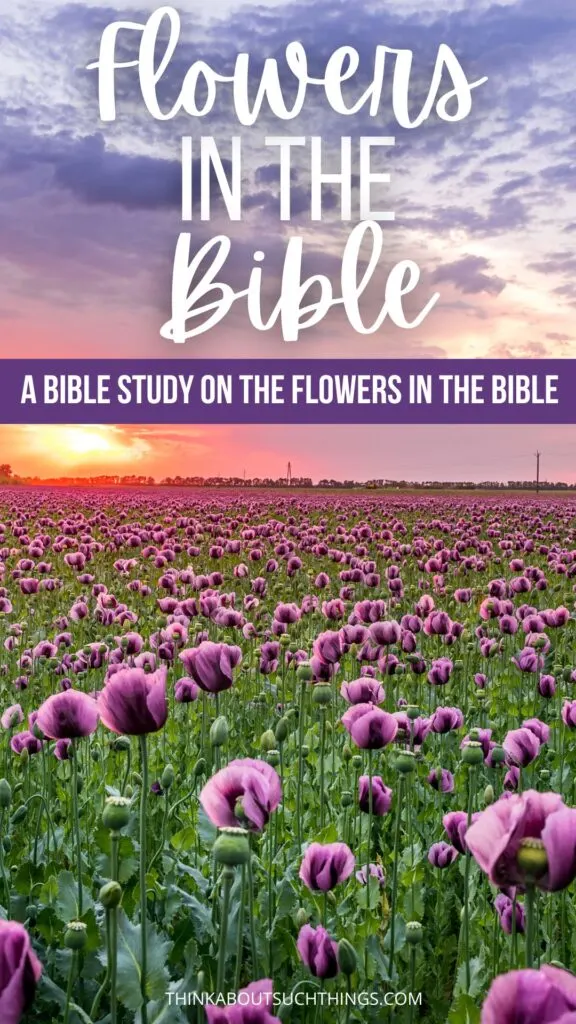
>> Check Out Trees in the Bible: Symbolism and Significance and Mountains in the Bible: Symbolism and Significance
Flowers in the Bible
Plants and flowers are mentioned all throughout the Old and New Testaments. But there are a few things we need to keep in mind as we go through this list. For one, I didn’t mention flowering fruit or nut plants/trees. I didn’t mention plants that produce flowers but were known for their perfume or fragrance, like spikenard.
For example, Isaiah 18:5 talks about the flowers of the grapevine. I did my best to stick to true flowering plants that are known mostly for their blooms.
Another issue that we must we keep in mind is that exact species are not mentioned in scripture. Some flowers are generally mentioned as “flowers“. We see this when Jesus makes His famous statement about the lilies of the field. He is referencing wildflowers that grow in the fields of Israel. So, we will look at common flowers that grow wild in Israel and the Palestine area.
Alright, now that we have covered the basics, let’s check out these flowers in the Bible!
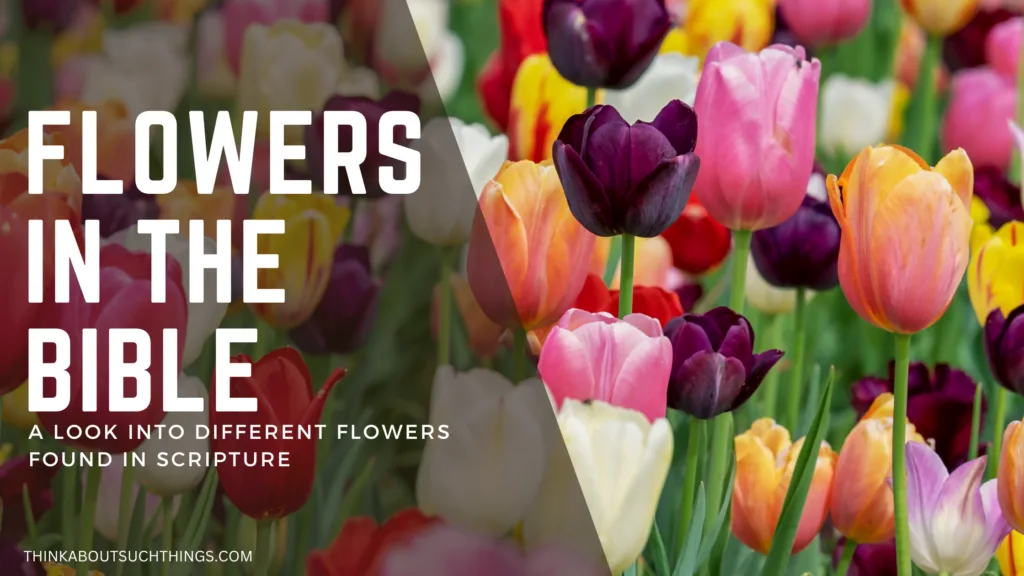
Black Cumin – Nigella Sativa
When he has leveled its surface, Does he not sow [the seed of] dill and scatter cumin, And plant wheat in rows, And barley in its [intended] place and [a]rye within its border? For his God instructs [him correctly] and teaches him properly. For dill is not threshed with a sharp threshing sledge, Nor is a cartwheel rolled over cumin; But dill is beaten out with a staff, and cumin with a rod. - Isaiah 28:25-27 AMP
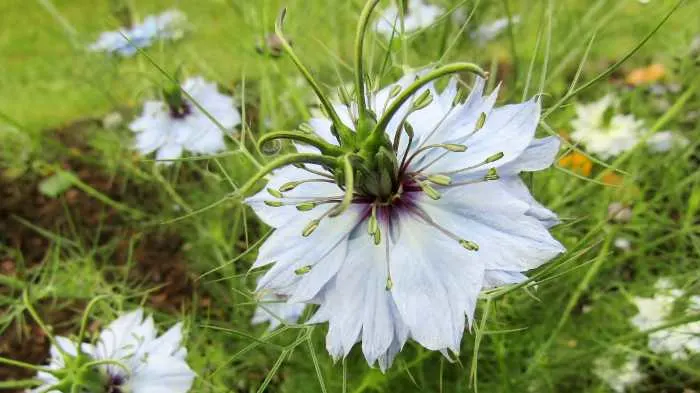
Black Cumin is a beautiful flower that produces black cumin seeds. These seeds are pungent and have a distinct flavor. They are used in many recipes like bread and also used medicinally.
Broom Bush – Retama Raetam
while he himself went a day’s journey into the wilderness. He came to a broom bush, sat down under it and prayed that he might die. “I have had enough, Lord,” he said. “Take my life; I am no better than my ancestors.” Then he lay down under the bush and fell asleep. All at once an angel touched him and said, “Get up and eat.” – 1 Kings 19:4-5 NIV
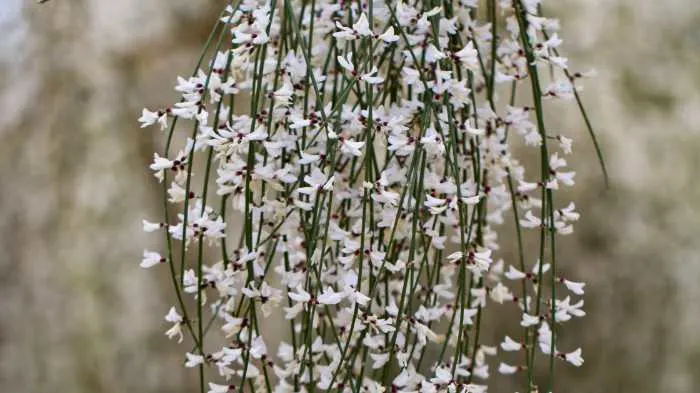
According to the Holman Dictionary, KJV calls this flower the “fitch,” but the better designation is probably the nutmeg flower. This flower was a member of the buttercup family and grew wildly in most Mediterranean lands. The plant was about two feet high and had bright blue flowers. The pods of the plant were used like pepper. Technically the plant is probably dill (NRSV, NASB, REB) or more precisely black cummin (Nigella sativaro). NIV translates “caraway.”
Other References:
Job 30:4
Psalm 120:4
Jeremiah 17:6, 48:6
Buttercup – Ranunculus Species
Consider how the wildflowers grow. They do not labor or spin. Yet I tell you, not even Solomon in all his splendor was dressed like one of these. – Luke 12:27 NIV
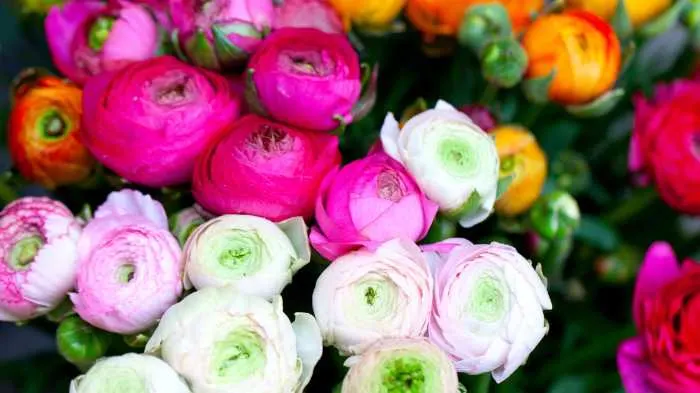
Butter cups are a common flower found in Israel and the Middle East. These could one of the many flowers Jesus referred to in Luke and Matthew.
Other References:
Matthew 6:28-30
Crocus (Meadow Saffron) – Colchicum Autumnale
The wilderness and the dry land will be glad;
The Arabah (desert) will shout in exultation and blossom
Like the autumn crocus. – Isaiah 35:1 AMP
The spice saffron comes from a specific type of crocus flower. We see this mentioned in Songs of Songs 4:14 as saffron is listed as one of the species. It’s also really interesting to note that the crocus is well-recognized as the emblem of David in ancient Israel. (source)
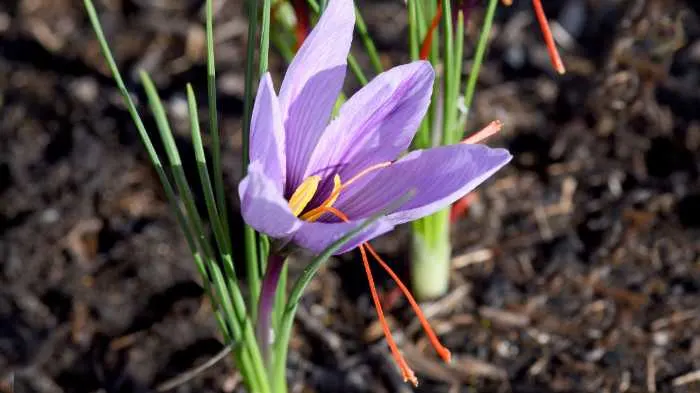
We usually see crocus translated as rose in scripture and some people believe it’s in reference to asphodel.
Daffodil – Narcissus Tazetta
“I am the rose [of the plain] of Sharon,
The lily of the valleys [that grows in deep places].”
“Like the lily among the thorns,
So are you, my darling, among the maidens.” – Song of Songs 2:1-2 AMP
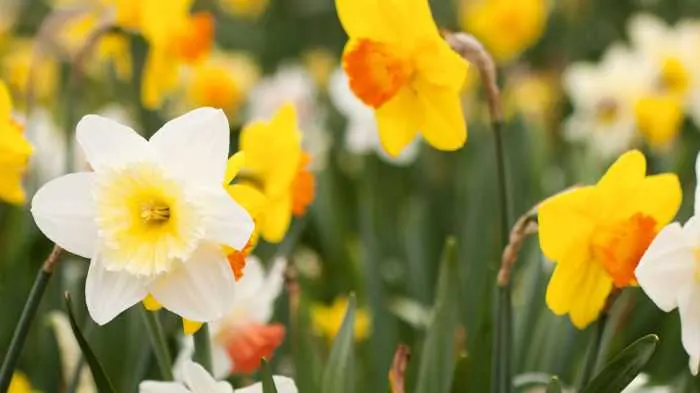
Other References:
Matthew 6:30
Some believe that the Rose of Sharon is a mistranslated for daffodils. Here is what one source says about this…
“Havatzelet is not a rose; “The rose of Sharon” (Song of Songs 2:1-2) is a mistranslation. The Narcissus tazetta is believed to be the oldest cultivated narcissus, as it was known in ancient Egypt and Greece. Its native is unknown and it is spread throughout the Mediterranean region, as far eastwards as China. It is a bulbous perennial, with broad, strap-shaped, gray-green leaves. The fragrant blooms have white petals and yellow coronas. Multiple blossoms appear on leafless stems. It blooms in late autumn and winter.”
Chamomile – Anthemis nobilis and/or Anthemis palestina
But the wicked will perish: Though the Lord’s enemies are like the flowers of the field, they will be consumed, they will go up in smoke. - Psalm 37:20 NIV
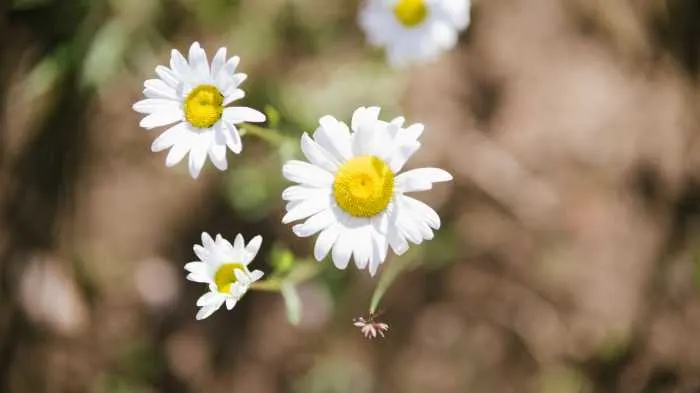
Chamomile, both Dog Chamomile and Israeli Chamomile, grows wild in the fields of Israel and Palestine.
Other References:
Isaiah 40:6-8
1 Peter 1:24-25
Henna – Lawsonia Inermis
“My beloved is to me a cluster of henna flowers In the [fragrant] vineyards of Engedi.” - Song 1:14 AMP
We only see Henna blossoms and Henna shrubs mentioned in the book of Songs of Songs. 11th-century French Jewish Rabbi Rashi, views of Henna blossoms are mentioned below.
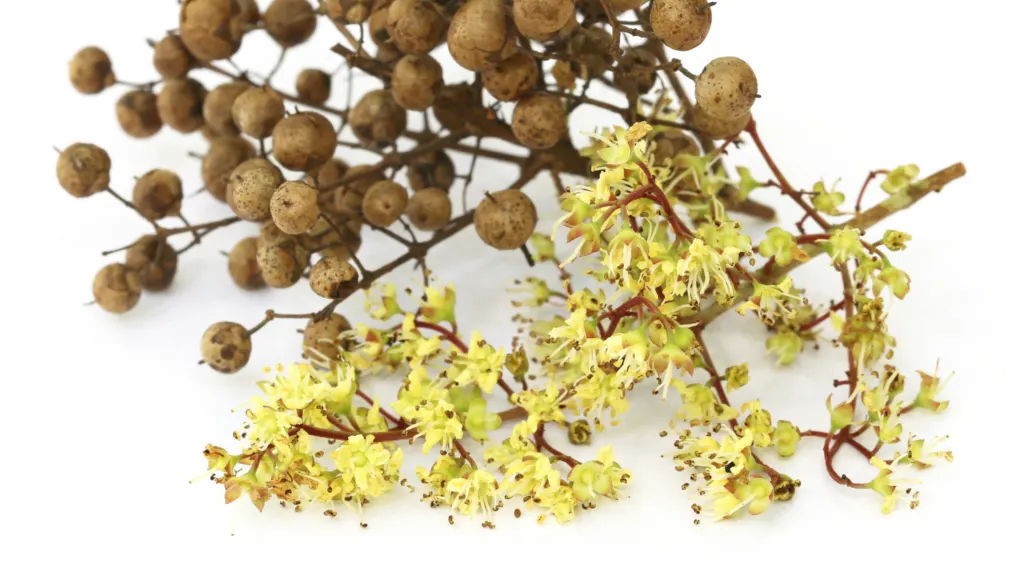
“Rashi, a Jewish scholar from 11th c France, interpreted this passage that the clusters of henna flowers were a metaphor for forgiveness and absolution, showing that God forgave those who tested Him (the Beloved) in the desert. Henna was grown as a hedgerow around vineyards to hold soil against wind erosion in Israel as it was in other countries. A henna hedge with dense thorny branches protected a vulnerable, valuable crop such as a vineyard from hungry animals. The hedge, which protected and defended the vineyard, also had clusters of fragrant flowers. This would imply a metaphor for henna of a “beloved”, who defends, shelters, and delights his lover. In the first millennium BCE, in Canaanite Israel, henna was closely associated with human sexuality and love, and the divine coupling of goddess and consort.” (Source)
Other References:
Song of Songs 7:11-13
Hyacinth – Hyacinthus Orientalis
And thus I saw the horses in the vision: those who sat on them had breastplates of fiery red, hyacinth blue, and sulfur yellow; and the heads of the horses were like the heads of lions; and out of their mouths came fire, smoke, and brimstone. – Revelation 9:17
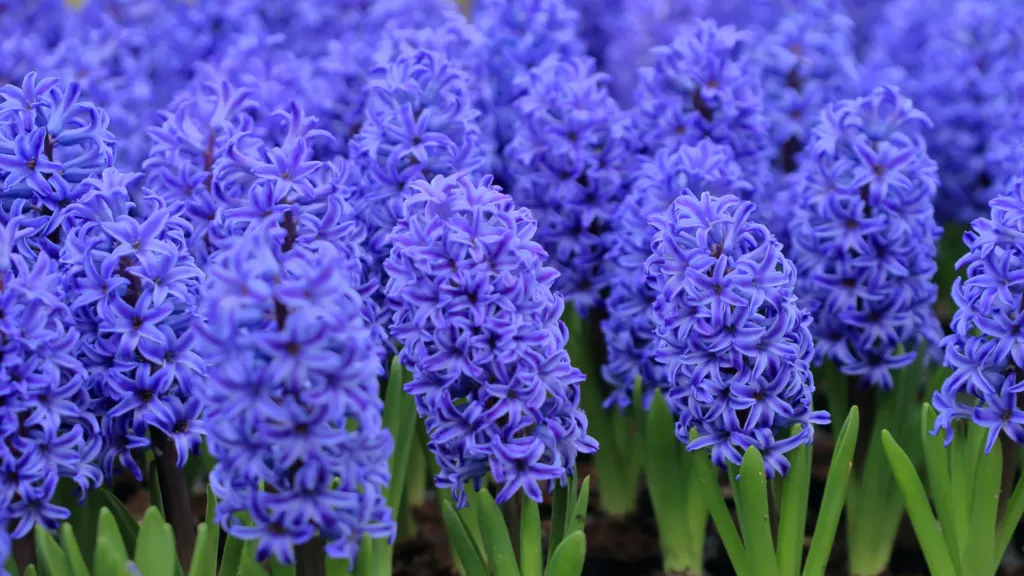
Hyacinths are only mentioned to describe a specific color. This would mean the people of the middle east were very familiar with this flower.
Lupin – Lupinus Species
Let the lowly brother glory in his exaltation, but the rich in his humiliation, because as a flower of the field he will pass away. – James 1:9-10
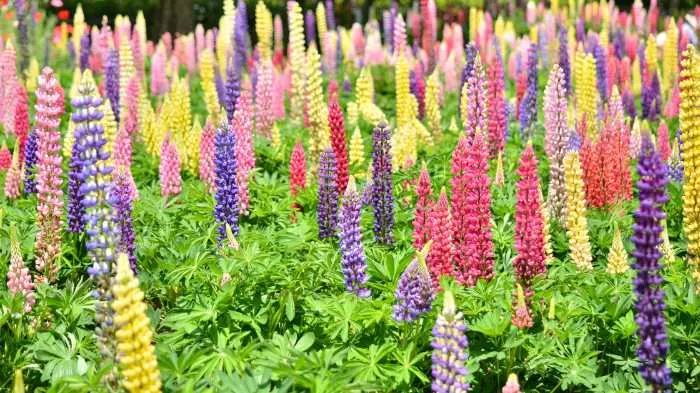
Lupin is a common field flower around Israel. This could be one of the many flowers we see mentioned in those generic verses about the flowers of the field. Like this one in James:
Madonna Lily – Lilium Candidum
“I am the rose [of the plain] of Sharon,
The lily of the valleys [that grows in deep places].”
“Like the lily among the thorns,
So are you, my darling, among the maidens.” – Song of Songs 2:1-2 AMP
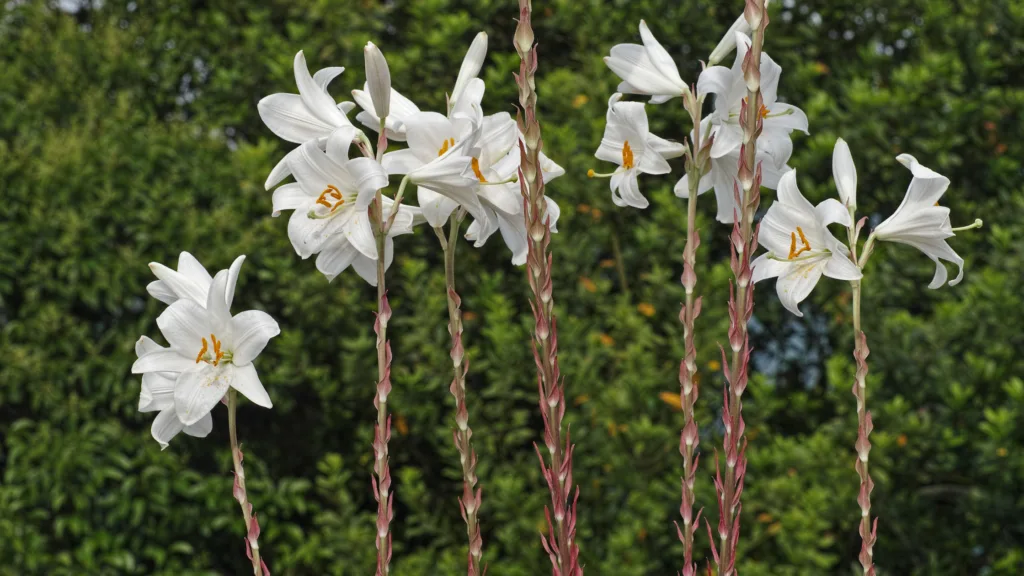
When we hear the famous phrase “lily of the valley,” the first thought we get is of lilies or even what we now know as the flower lily of the valley. But the truth is that this phrase is generic and no one is quite sure if it’s referring to actual lilies or perhaps another fragrant flower like tulips, anemones (poppies), iris, Hyacinth, or something similar.
We know that Lilium Candidum is a native plant to the middle east. So, the Lilly of the valley could very well have been a Lilly.
Poppy – Anemone Coronaria
“So why do you worry about clothing? Consider the lilies of the field, how they grow: they neither toil nor spin; and yet I say to you that even Solomon in all his glory was not arrayed like one of these. Now if God so clothes the grass of the field, which today is, and tomorrow is thrown into the oven, will He not much more clothe you, O you of little faith? -Matthew 6:28-30
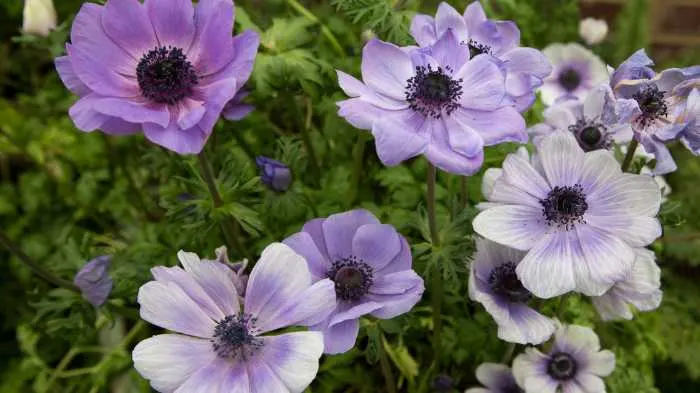
Poppies are another one of those flowers that grows wild in the middle east. So, the reference for flowers of the field or wild flowers could also mean poppies! If you would like to see a field of wild poppies in Israel head over to: The Fascinating Flower Story of a Poppy and a Kalaniyot
They also state, “Poppies, however — known as pereg in Hebrew — grow in abundance all over Israel. Altogether, nine different species can be found, most beginning their bloom season in March, and none lasting past June.”
Rock Rose – Cistus Salviifolius
And they sat down to eat a meal. Then they lifted their eyes and looked, and there was a company of Ishmaelites, coming from Gilead with their camels, bearing spices, balm, and myrrh, on their way to carry them down to Egypt – Genesis 37:25
You may read that verse above and think, “hey, there is no mention of that flower in the Bible!” And in some ways, you are right, but Rock Roses grow in the area of Gilead and produce a type of gum or resin. This could be one of the gums they used to make the balm of Gilead as it has medicinal properties.
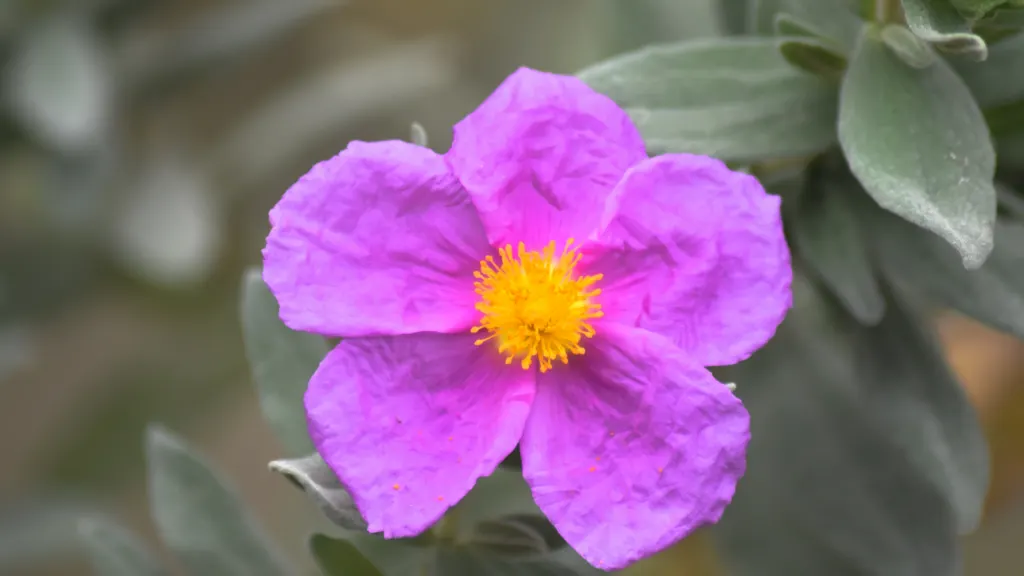
Most Cistus species have aromatic foliage but some species also exude a highly aromatic gum or resin, called ladanum or labdanum, a gold-colored essential oil with the penetrating odor of ambergris, which has been used in incenses since ancient times and it was also used for embalming and aphrodisiac purposes. Nowadays, it is a valuable ingredient of perfumes and as incense in Eastern churches. Ladanum and other extracts from cistus also have a long history of use in folk medicine. (source)
Other References:
Genesis 37:25
Genesis 43:11
2 Chronicles 28:15
Jeremiah 8:22
Jeremiah 46:11
Jeremiah 51:8
Ezekiel 27:17
Flowering Plants in Scripture
There are lots of plants mentioned in the Bible that were also flowering plants. Scripture doesn’t touch specifically on the flower but on the whole plant. So, I thought I would mention those as well.
- Mandrake – Gen. 30:14-16; Song 7:13
The mandrake is an herb of the nightshade family like tomatoes and peppers. They produce mauve-colored flowers during the winter.
- Almond blossoms – Gen. 43:11; Exod. 25:33-34; 37:19-20; Num. 17:8; Eccles. 12:5
Fun fact almond trees come from the rose family! Almond blossoms are mentioned heavily in the Torah. Many believe almond trees symbolize God is watching, or God is faithful. This is because of Jeremiah 1:11-12.
And the word of the Lord came to me, saying, “Jeremiah, what do you see?” And I said, “I see an almond branch.” Then the Lord said to me, “You have seen well, for I am watching over my word to perform it.”
- Mint – Matt. 23:23; Luke 11:42
Most of us are familiar with mint. This aromatic herb will create white and pink flowers.
- Myrtle branches – Neh. 8:15; Isa. 41:19; 55:13; Zech. 1:8-11.
Myrtle bushes are evergreen that grows on Palestinian hillsides, they produce a fragrant white flower.
- Leek, Onions, and Garlic – Num. 11:5.
Leeks, onions, and garlic are part of the lily family, and will bloom if left to grow. Israel missed eating them when they left Egypt.
- Pomegranate blossoms – Exod. 28:33, Num. 13:23; 1 Sam. 14:2; 1 Kings 7:18
Pomegranate trees blossom large red flowers in late May or early June. Throughout the Bible, you will see pomegranates mentioned especially in decorating.
Other Terms for Flowers in the Bible
The Bible is filled with different terms referring to flowers. Some of the most common are these below, but remember, each Bible translation has its own way of phrasing words.
- Open Flowers
- Flowers of the Valley
- Flower of the Field
- Flower of the Grass
- Wild Flowers
- Blossoms and/or Blooms
- Fading Flower
Symbolic Meaning of Flowers in Scripture
Flowers throughout the Bible have various spiritual meanings, and you see them used figuratively.
Human Life
As for man, his days are like grass;
Like a flower of the field, so he flourishes.
For the wind passes over it and it is no more,
And its place knows it no longer. – Psalm 103:15-16
Human life is often compared to flowers. Just like how a flower burst into bloom, yet a few weeks later, the flower begins to fade and wither away. We see this in Job 14:2, Psalm 103:15-16; Isaiah 40:6, and 1 Peter 1:24.
New Life and Renewal
‘The flowers appear on the earth once again;
The time for singing has come,
And the voice of the turtledove is heard in our land. – Song of Songs 2:12
Flowers can signify new life, a new season, and renewal.
The Downfall of the Disobedient or Hypocrite
“He will fail to bring his grapes to maturity [leaving them to wither unnourished] on the vine, And will cast off blossoms [and fail to bring forth fruit] like the olive tree. – Job 15:33
Woe (judgment is coming) to [Samaria] the splendid crown of the drunkards of Ephraim, And to the fading flower of its glorious beauty, Which is at the head of the rich valley Of those who are overcome with wine! – Isaiah 28:1
Casting off the blossom is that the plant was never able to bare fruit and people the same way. They will never succeed or produce fruit when they are a hypocrite and the same for a disobedient person. Even if you experienced a glorious season sooner or later it will fade. Showing there are seasons in life.
Worry or Anxiety
And why are you worried about clothes? See how the lilies and wildflowers of the field grow; they do not labor nor do they spin [wool to make clothing] – Matthew 6:28
Jesus teaches us that we need not worry that if He takes care of the lilies, how much more than you?
Womanhood
But if any man think that he behaveth himself uncomely toward his virgin, if she pass the flower of her age, and need so require, let him do what he will, he sinneth not: let them marry. – 1 Corinthians 7:36 KJV
We see the phrase “pass the flower of her age.” this symbolizes a girl reaching womanhood.
All Things Fade Away (Seasons)
But the rich, in that he is made low: because as the flower of the grass he shall pass away.
For the sun is no sooner risen with a burning heat, but it withereth the grass, and the flower thereof falleth, and the grace of the fashion of it perisheth: so also shall the rich man fade away in his ways. -James 1:10-11
This specific verse talks about the rich and how their season of wealth is just for a moment, like the flower of the field.
Christian Quotes About Flowers
In this section, I thought it would be fun to go over some popular Christian quotes about flowers. If you are looking for Bible verses on flowers then please head over to:
When people come up and give me a compliment… I take each remark as if it were a flower. At the end of the day I lift up the bouquet of flowers I have gathered throughout the day and say, ‘Here you are, Lord, it is all Yours.’ – Corrie Ten Boom
No Scripture is exhausted by a single explanation. The flowers of God’s garden bloom not only double, but sevenfold; they are continually pouring forth fresh fragrance. – Charles Spurgeon
Evil things are easy things: for they are natural to our fallen nature. Right things are rare flowers that need cultivation. – Charles Spurgeon
Holiness appeared to me to be of a sweet, pleasant, charming, serene, calm nature; which brought an inexpressible purity, brightness, peacefulness, and ravishment to the soul. In other words, that it made the soul like a field or garden of God, with all manner of pleasant flowers. -Jonathan Edwards
The author squares man’s depravity with still being made in the image of God with this word picture. A vase that has held beautiful roses though now broken, will nevertheless hold something of the fragrance it once contained. – A.W Tozer
If a skillful workman can turn a little earth and ashes into such curious transparent glasses as we daily see, and if a little seed that bears no show of such a thing can produce the more beautiful flowers of the earth; and if a little acorn can bring forth the greatest oak; why should we once doubt whether the seed of everlasting life and glory, which is now in the blessed souls with Christ, can by Him communicate a perfection to the flesh that is dissolved into its elements? – Richard Baxter
Most marvellous and enviable is that fecundity of fancy which can adorn whatever it touches, which can invest naked fact and dry reasoning with unlooked for beauty, make flowers bloom even on the brow of the precipice, and turn even the rock itself into moss and lichens. This faculty is most important for the vivid and attractive exhibition of truth to the minds of men. – Thomas Fuller
Flowers are the sweetest things God ever made and forgot to put a soul into. – Henry Ward Beecher
These things—the beauty, the memory of our own past—are good images of what we really desire; but if they are mistaken for the thing itself they turn into dumb idols, breaking the hearts of their worshipers. For they are not the thing itself; they are only the scent of a flower we have not found, the echo of a tune we have not heard, news from a country we have never yet visited. – C.S Lewis
Whew…. you did it! That was a lot on the topic of flowers in the Bible and you know what? There is even more! But I hope this basic overview has been what you have been looking for and that it has caused your hunger for God to be stirred up. Feel free to leave me a comment below as I love to hear how my reader are growing in the Lord.

Melissa is a passionate minister, speaker and an ongoing learner of the Bible. She has been involved in church and vocational ministry for over 18 years. And is the founder of Think About Such Things. She has the heart to equip the saints by helping them get into the Word of God and fall more in love with Jesus. She also enjoys family, cooking, and reading.
She has spoken in churches in California, Oregon, Texas, and Mexico and has been featured in Guidepost Magazine and All Recipes Magazine. Read More…
